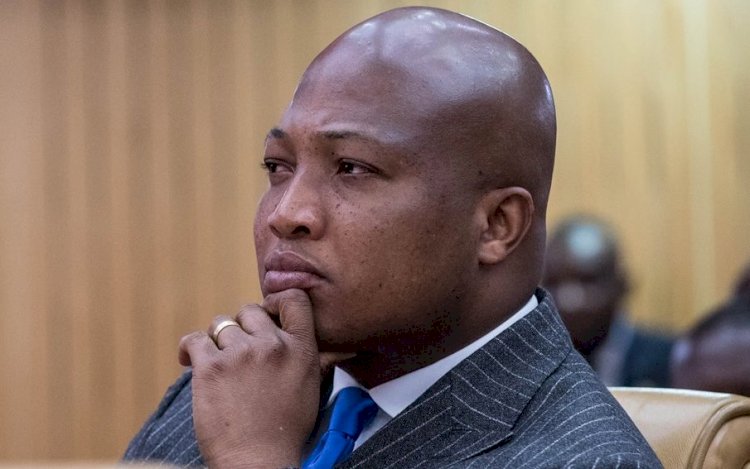Covid-19: Ablakwa Lists 11 Reasons why Reopening Schools is a Bad Idea
The MP says government should be advised by happenings in France and North Korea who prematurely reopened educational institutions.

The President of Ghana, Nana Akufo-Addo Dankwa on Sunday, eased the covid-19 induced restrictions on educational institutions across the country.
The president gave the green-light for schools to reopen to final year students as he announced the first phase of eased COVID-19 restrictions.
Ghana’s Education Minister, Matthew Opoku-Prempeh following the announcement, said final year Senior High School (SHS) students in Ghana are scheduled to write their exit exams on July 31, this year, six weeks after reporting to school on June 22.
He added that, Junior High Schools (JHSs), final-year students were going to be in school for academic work for 11 weeks, from June 29 to September 11, this year, and write their Basic Education Certificate Examination (BECE) between September 14 and 18, this year.
The reopening of the educational institutions has however been heavily criticized by many.
Some took to social media to register their displeasure against the decision taken by the Akufo-Addo government.
The Ranking Member on Parliament’s Foreign Affairs committee, Samuel Okudzeto Ablakwa has also weighed in on the ensuing debates on allowing final year students back into the classroom.
The North Tongu legislator described the move by the government as risky.
READ ALSO:
George Floyd Protests Hit Nigeria, Ghana Next?
He argued that government’s decision may cause a spike in Covid-19 cases, as schools in the country are not built to contain large number of students without risking community infections.
Here is what the MP wrote on Facebook
My thoughts on Government’s programme to reopen schools:
1) The continuous assessment of final year students in JHS and SHS could have been deemed adequate for their progression to the next level.
2) Alternatively, in addition to the continuous assessment, a one-off entrance exam could have been considered at the point of entry into SHS and tertiary institutions in August/September at the beginning of the 2020/2021 academic year in order to avoid many risky weeks in school.
3) Considering that the 2019/2020 academic year had only two-weeks to run its course when schools were closed, there wouldn’t have been significant loss of contact hours if the above suggestions were implemented.
4) Tertiary institutions including universities, polytechnics, colleges of education and nursing training institutes should all have been required to complete their online studies (I am reliably informed most had completed) and made to sit for online examinations or submit term papers, thesis or project works as many tertiary institutions all over the world have considered; this would have avoided the risk of tertiary students congregating for some six long weeks.
5) When the Minister for Education announced yesterday that all final year day students are obliged to join their colleagues to become boarders in their respective schools; the Minister appears to forget that by my checks, there are as many as 145 Senior High Schools in Ghana which are strictly Day Schools and so do not have the luxury of boarding facilities. How do these students become boarders in such schools without dormitories, dining halls and bathrooms?
6) Even with the 576 Senior High Schools with boarding facilities, we do know the configuration of particularly residential facilities are very communal. There are only few bathrooms for many students to share. The lack of exclusive spaces would put many students at risk if one student is COVID-19 positive. Without any structural design changes or reconfiguration of boarding facilities which were not built with highly contagious diseases such as the novel coronavirus in mind, we all ought to be extremely cautious.
7) The other matter that may have been overlooked is the financial burden on parents and guardians of day students. Data already reveals that most day students who currently make up 37% of students at the second cycle level belong to vulnerable households and often that is the reason they opt to be day students. How do we expect this category to comfortably purchase the long list of items on the prospectus needed for boarding within this short timeframe and within the current context of an excruciating economic pandemic?
8)It is totally dangerous, reckless and an utter dereliction not to make provision for teachers, non-teaching staff and students to be tested before placing all of them in the school environment for academic work. This must be fiercely resisted by the teacher unions, PTAs and SRCs.
9) Second year Gold Track SHS students should simply continue to stay at home. This would only worsen congestion and increase risk. Government must rescind its decision on this immediately.
10) It is absolutely surprising to hear Government’s position being articulated to the effect that parents would not be allowed to visit their children in Senior High Schools. Directives like this are unreasonable and would only make parents keep their children at home and wait for the resumption of BECE and WASSCE for Private Candidates. What happens when a student in boarding school is taken ill? We are confronted by a vicious pandemic and it is naturally expected that parents would be more anxious and be on the look out for their children than they will in normal times. What Government could have considered are visiting protocols in line with best public health advice and not outrightly proscribing parental visits. Another clear indication that Government’s school reopening plan is not well thought out.
11) The lessons from other jurisdictions such as France and South Korea where reopened schools in no time contributed to mass infections should guide us to make smarter choices driven by science and love for our children.






































